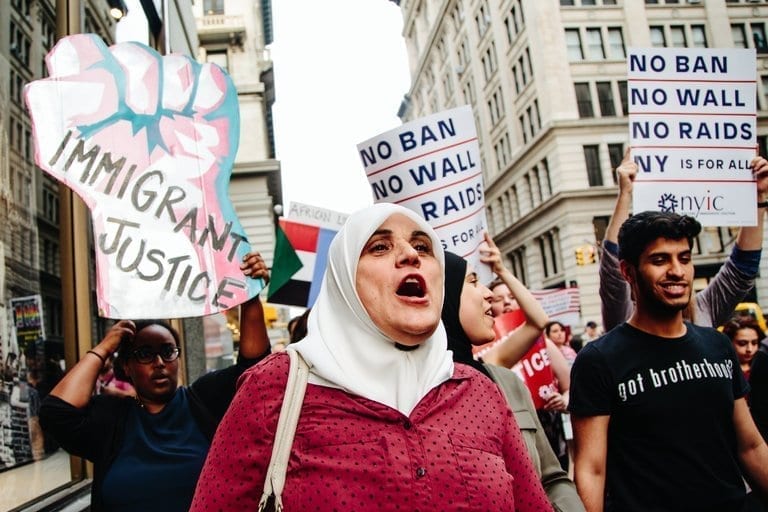On Monday, the Supreme Court granted a request by the Trump administration to lift restrictions on part of the president’s ever-controversial travel ban.
The one-page order, signed by Justice Anthony Kennedy, blocked a portion of the 9th Circuit Court of Appeals ruling.
The ruling would have stopped the government from denying visas to immigrants from war-torn countries who had connections and formal assurances from resettlement agencies or are in the U.S. Refugee Admissions Program.
The second rendition of President Trump’s travel ban sought to limit migration and refugee entries from six Muslim-majority countries, deeming the blacklisted states as ‘terror-prone nations.’

However, critics of the administration were quick to enact legal challenges, pointing at Trump’s harshly anti-Muslim rhetoric on the campaign-trail. Activists and some lower court judges maintained that the words from the 2016 election were more than enough evidence to show the executive order and travel ban had been issued in contravention of the 1st Amendment.
When the Supreme Court agreed to hear the Justice Department’s appeal in summer, they lifted part of the injunction against the order but said that persons with ‘bona fide relationships’ to individuals or entities in the United States should not be denied entry.
The Supreme Court didn’t clearly define what was meant by ‘bona fide relationships,’ leaving the lower 9th Circuit Court of Appeals to make the determination.
The Circuit Court’s justices concluded in August that ‘bona fide relationship’ could be extended to include the grandparents and cousins of U.S. citizens and residents, as well as persons who were promised resettlement in the United States by refugee resettlement organizations.
With the Supreme Court showdown less than a month away, the Justice Department stepped up its efforts to challenge some of the Circuit Court’s decisions.
Justice Kennedy said his decision to allow the government to block refugees with resettlement connections was pending, contingent on a receipt of response by the State of Hawaii, which is due Tuesday.
The administration has decided not to fight the ‘close family’ aspect of the case, saying that part of the ruling was ‘less stark’ than the nullification of the refugee provision.
“Unlike students who have been admitted to study at an American university, workers who have accepted jobs at an American company, and lecturers who have come to speak to an American audience, refugees do not have any freestanding connection to resettlement agencies, separate and apart from the refugee-admissions process itself, by virtue of the agencies’ assurance agreement with the government,” wrote Acting Solicitor General Jeffrey Wall.
The Trump administration’s order seeks to block travelers and immigrants from Iran, Libya, Somalia, Sudan, Syria, and Yemen from entering the United States for 90 days, with the Supreme Court due to hear the case on October 10th.
Sources
Justice Kennedy’s Order Temporarily Leaves in Place Trump Travel Ban on Refugees
Supreme Court temporarily lifts restrictions on Trump travel ban


Join the conversation!